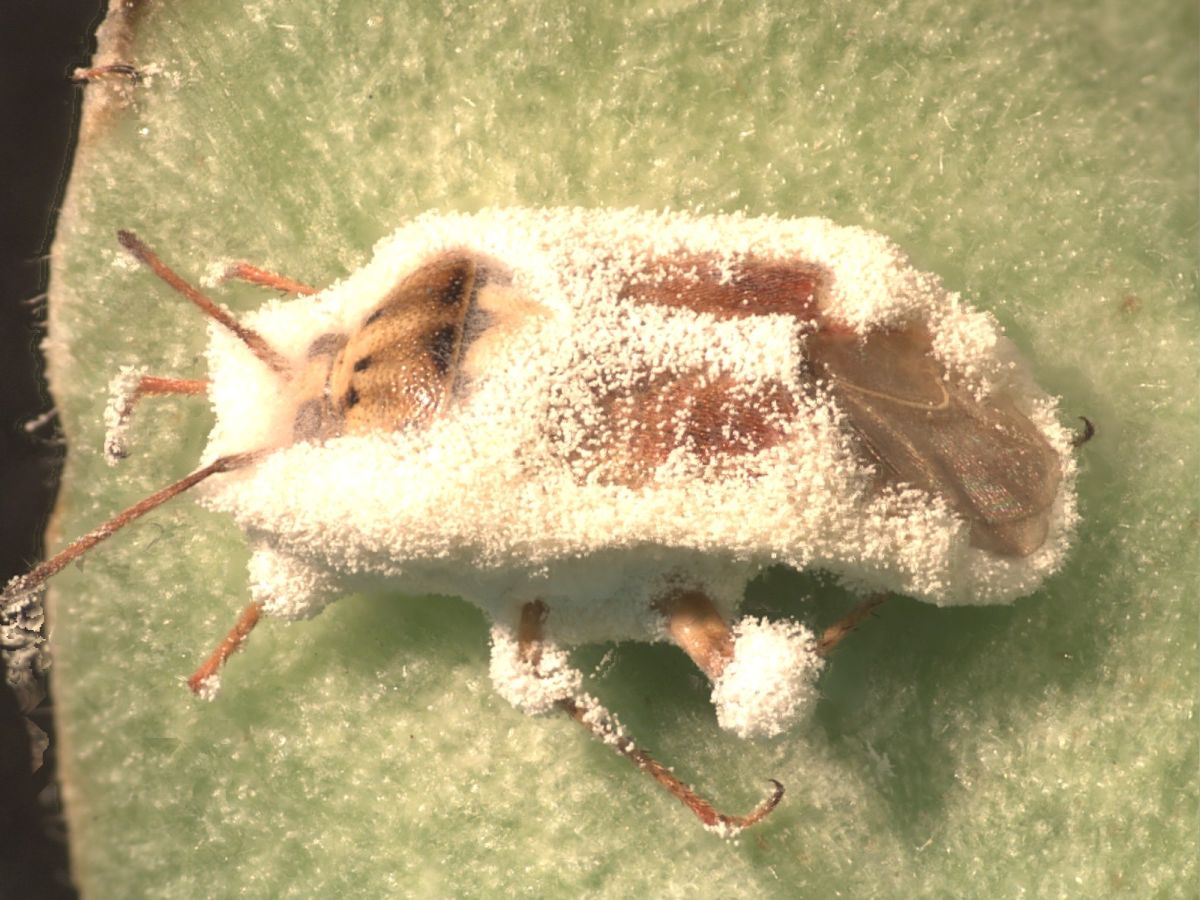
A ‘new generation’ of environmentally friendly pesticides is a step closer as researchers make an important breakthrough in pest control efficiency thanks to an insect-killing fungus.
Scientists are investigating the potential of Beauveria bassiana (B. bassiana) as an environmentally friendly pesticide, or bio-insecticide.
B. bassiana is an insect-pathogenic fungus found naturally in soil and on some plants.
The fungus can kill a wide range of bugs by infecting them with its spores. These include notorious crop-killing and household pests such as whiteflies, aphids, grasshoppers and termites.
Insect-pathogenic fungi, such as B. bassiana, are already used in many commercially available bio-insecticides which are known as mycoinsecticides.
But scientists Dr Robert Coutts from the University of Hertfordshire and Dr Ioly Kotta-Loizou from Imperial College London, are specifically researching the viral community of B. bassiana.
They have discovered certain mycoviruses (viruses that infect fungi) cause hypervirulence and increase mycoinsecticidal efficiency.
'Potentially transformational'
Dr Robert Coutts, Research Fellow in Biological and Environmental Sciences at the University of Hertfordshire, said the discovery is 'potentially transformational'.
He said: "It could elevate the profile of B. bassiana as one of the most environmentally friendly pest control agents for farmers today.
"This would safeguard ecosystems internationally, especially where the use of chemical insecticides is particularly prevalent.
"It is an extremely important breakthrough. By using viruses as enhancers we will create a new generation of improved mycoinsecticides, increasing the quality of global food production and reducing the environmental impact."
Sustainable method
Chemical insecticides are used widely in agriculture and horticulture worldwide, but greatly impact the biodiversity of the local environment.
However, insecticides also have an important role to play in ensuring that there is enough safe and healthy food for the world’s population.
Without them it has been estimated that global food production could fall by as much as 35-40%, increasing the cost of food and threatening food security.
Therefore, with demand for food increasing annually, the development of an environmentally friendly pest control agent is of international significance as it would enable a sustainable method of food production whilst also conserving local ecosystems.
